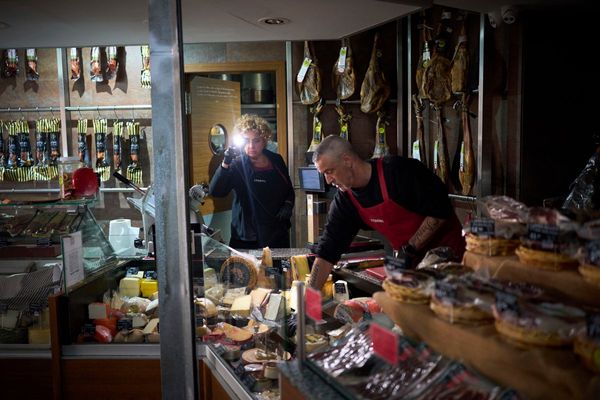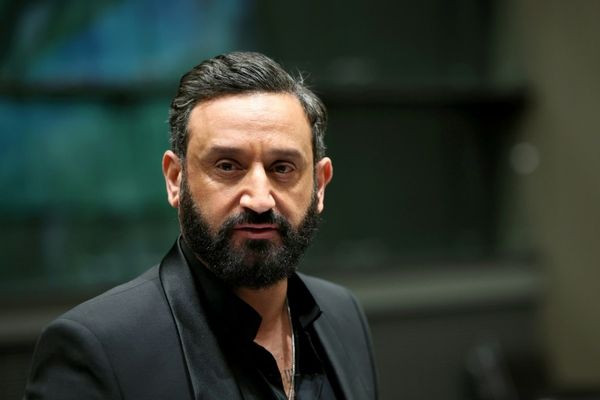
The Coalition must improve its offering to female voters and oppose electoral laws that entrench incumbent Labor governments, federal Liberals have suggested following their disappointing Victorian election defeat.
But Anthony Albanese argued on Sunday the election also has lessons for the media, citing adverse commentary about Victorian premier Daniel Andrews as part of a “scare campaign” that had fallen flat.
Andrews won a third term on Saturday, with Labor on track to win as many as 56 lower-house seats – a one-seat advance on its thumping 2018 win.
The Greens will increase their lower house representation to four with the seat of Richmond but are trailing in Northcote and Preston, limiting their gains despite early predictions of a “Greenslide”.
The Coalition had secured 25 seats by Sunday afternoon and was ahead in two more, thanks to three Nationals gains and Liberal Sam Groth winning back blue-ribbon Nepean. Matthew Guy announced on Sunday he would step down as Liberal leader in Victoria after the party returned its lowest primary vote since the 1952 state election.
The federal shadow finance minister, Jane Hume, told ABC Radio on Sunday there was “absolutely no doubt that fewer women are voting for the Liberal party than used to”.
“Particularly in that cohort of professional women – and that’s something we’ve seen on a federal level and state level, and something we need to address.”
Hume has been conducting a review of Scott Morrison’s 2022 federal election defeat, and will along with former federal Liberal director Brian Loughnane present some of its findings when the federal Liberal executive meets on Monday.
In addition to “where the votes come from”, Hume said it was important to improve “representation within the party” both to “better reflect communities we represent” and to improve decision-making with greater diversity around the table.
“Quotas as an answer to both those problems is a very blunt solution indeed,” Hume said.
“We actually had more women running at this election in winnable seats than we’ve ever had before.”
The federal shadow immigration minister, Dan Tehan, another senior Victorian Liberal, told Sky News there was “only one” federal implication he could draw from the result – “and that’s to do with campaign finance”.
Tehan argued that through Victorian campaign finance reforms – capping political donations, and increasing public funding of political parties and candidates – the Andrews government “made sure that the incumbent Labor party has an advantage”.
Tehan noted that “the Labor party federally is looking at campaign finance reform” in reference to proposals to cap both political donations and spending, which Guardian Australia revealed in July.
“Now the Liberal party and the National party needs to look at this legislation very carefully because in Victoria, it has meant that it has cemented an advantage to those in power,” Tehan said.
“We cannot stand by and let the same thing happen again, because otherwise we will be giving Labor a financial advantage over us when it comes to a national campaign.”
The proposals to cap spending and donations are being examined by the joint standing committee on electoral matters, and have received qualified approval from senator David Pocock despite the Liberals arguing Labor lacks a mandate for the reforms.
At a press conference in Canberra, Albanese congratulated Andrews, who he said had presented a “better vision” on infrastructure, hospitals, schools, “free kindy”, and “the recreation of the [State Electricity Commission] and a plan for a clean energy future”.
The prime minister bluntly rejected the “premature declaration” of Greens advances, and appeared to liken the Victorian result to his own May win, in which Labor won a majority with 77 seats while the Greens increased their lower house presence from one seat to four.
“I do find it rather extraordinary in some of the commentary that a party [in Victoria] that wins 50 seats gets told by a party that wins a handful that the lesson behind this election is not that the party that won 50 seats has had a success, but the party that wins a few have a big success,” Albanese said.
“I’ve seen that before. It’s something that’s replicated consistently.”
Albanese rejected the view that major parties are “somehow not ever going to be successful again”.
“I lead a majority Labor government. Daniel Andrews has just been elected for a third term with a majority Labor government.”
Albanese said Andrews had faced “a scare campaign run not just by the Liberal party”.
“I think anyone who looks at some of the commentary that’s been out there would suggest that Daniel Andrews didn’t exactly cop a fair assessment going forward,” he said.
“Voters can see through this and voters made their decision.”







